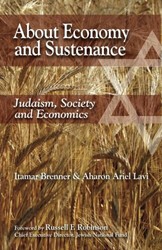In July of 2003, over 500 participants gathered in Baltimore, Maryland for a groundbreaking event, the First International Conference on Domestic Abuse in the Jewish Community. The event was sponsored by Jewish Women International and featured over 100 speakers. Domestic Abuse and the Jewish Community features 15 of those presentations and is the next best thing to having attended the conference.
In the introduction, the editors explain that “A fundamental commitment, which steered the conference program, was the belief that the global Jewish ‘community,’ though divided (sometimes bitterly) by politics, religious practice, culture and geography, could create mechanisms to work together based on shared values about what Judaism teaches about the nature of all relationships, and particularly about intimate and family relationships.”
To whet your appetite, the following are brief descriptions of three of the presentations:
Dr. Amy Robbins is a highly successful anesthesiologist who was battered by her ex-husband for ten years. She speaks with articulate passion about how she was able to extricate herself from the hell in which she was temporarily confined. Her presentation ends with a poem written by her 15-year-old daughter, Emily, who speaks with a voice that is brilliant and clear. It will simultaneously break your heart and fill it with hope.
Naomi Graetz, who teaches English at Ben Gurion University of the Negev, discusses how family issues are handled halakhically in Israel. The concept of civil marriage doesn’t exist in the State of Israel, so if a woman is being abused by her husband and wants a divorce, she must ask her abuser to give her a get. If he refuses, she is at the mercy of the Orthodox rabbinate.
Brenda Solarsh and Jane Frankel of the Jewish Helping Hand Society in Johannesburg, South Africa, provide an interesting description of the response of the close-knit South African Jewish community to domestic violence. This is a community in which the intermarriage rate is under 10% and 80% of the Jewish children attend Jewish day schools.
This book will be of the greatest interest to: rabbis, social workers, mental health and other professionals who work with the abused or the abusers; to those individuals who lives have been touched personally by domestic abuse and to Jewish organizations that are keenly interested in creating domestic abuse projects. Some of the material refers very specifically to Jewish law and might only be of concern to religious Jews and Jewish professionals. What is crystal clear is that holding this conference was a very important step forward for the global Jewish community and the resulting book is a treasure that is now available to help domestic violence survivors who need encouragement and ideas, to encourage intellectual discourse and to provide blueprints for the development of new services.





